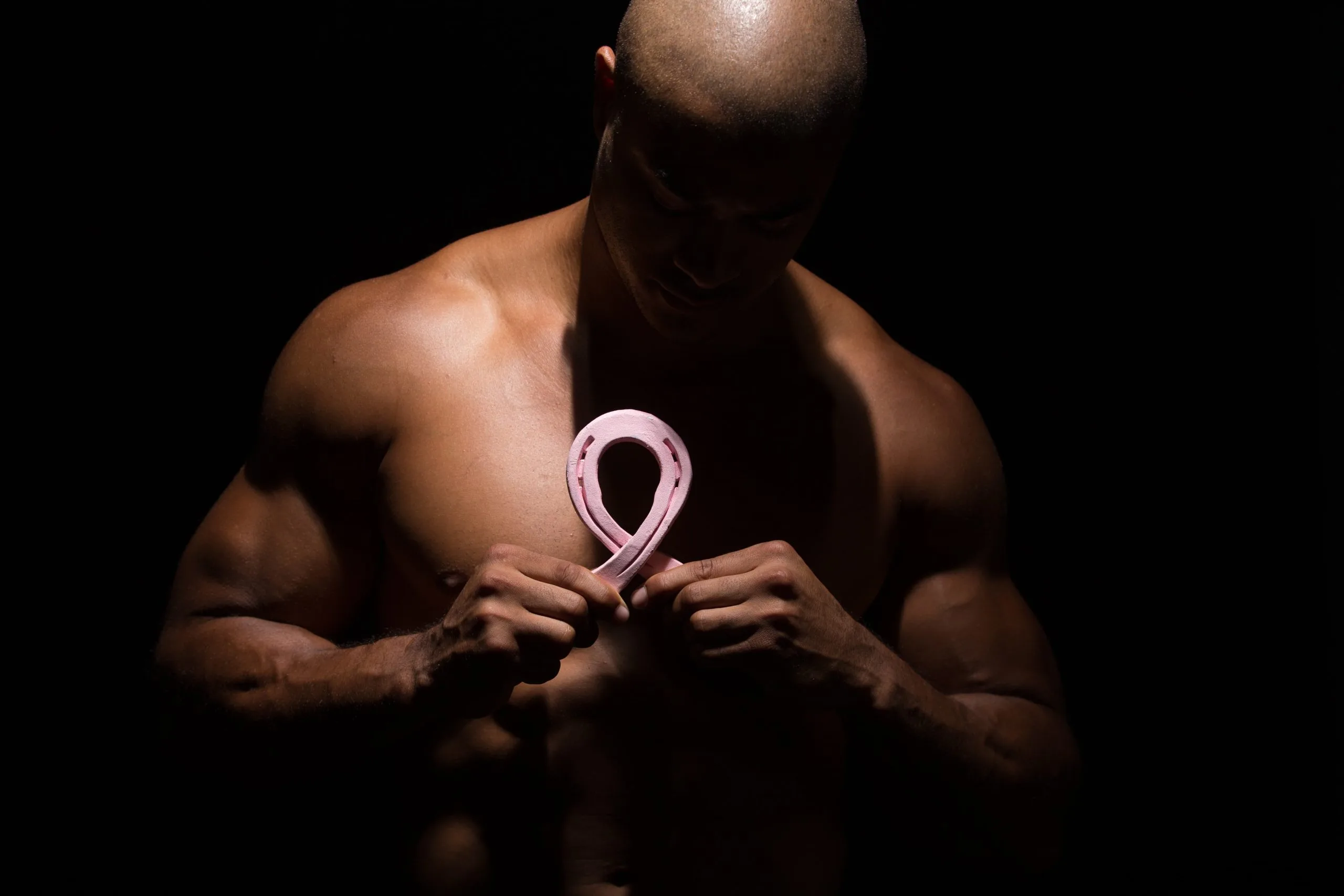When Graeme Comrie received his breast cancer diagnosis in 2009, it came as a shock for several reasons. At the age of 64, he had been leading a healthy lifestyle, he did his medical check-ups regularly, and lastly, he never thought that – as a male – he could be diagnosed with breast cancer.
“One day I discovered a small lump in my left upper breast, but I didn’t think much of it. I did not do anything about it for about two years until my doctor suggested that I have it tested. I took her advice and the results came back positive – I had breast cancer!” he remembers.
Although seen as a predominantly female disease, breast cancer affects men too.
Breast Cancer In Men
The risk is low, particularly in comparison to other common cancers. The National Cancer Registry states that the lifetime risk of suffering breast cancer in males is between 1 in 500 to 1 in 1000, depending on race. Men at any age may develop breast cancer, but it is usually detected in men between 60 and 80 years of age.”
Fortunately for Graeme, the doctors were able to remove the cancer surgically, and he now lives to tell the tale. However, the prognosis is slightly poorer for men than for women for a variety of reasons. Men are less likely to go to a doctor and therefore often present with advanced cancers. Anatomically, males have very little breast tissue, therefore, small tumors infiltrate early into the surrounding tissue and spread easily via the bloodstream and lymphatics to distant organs.
“14 years later, I am still cancer-free,” says Comrie. “I am incredibly grateful that the surgery and treatment worked.”
I stress the significance of early detection, as it vastly improves the chances of surviving any type of cancer. Below, I address some of the most crucial facts about breast cancer in men.
Do men get the same types of breast cancer as women?
The most common type of breast cancer seen in men is infiltrating ductal carcinoma. This is cancer that has spread beyond the cells lining the ducts in the breast. It is the most common type of breast cancer in women as well as men. All other forms of breast cancer are exceedingly rare in men.
Causes of breast cancer in men
It is estimated that cancer-causing genetic abnormalities are at least 2 – 4 times more common in males with breast cancer than in females. Genetic testing has therefore become part of routine care in males with breast cancer. Other risk factors include exposure to radiation, and having a disease related to high levels of estrogen in the body, such as liver disease or other genetic disorders.
How is breast cancer detected in men?
Men with breast cancer usually have a lump that can be felt (as in Graeme’s case). Men’s breasts are not often as big as women’s and a mass is therefore more easily palpated by a man. Medically, a biopsy is performed in order to make a proper diagnosis.
Photo by Norbert Buduczki on Unsplash
This involves the removal of cells or tissue fragments, so they can be viewed under a microscope by a pathologist to check for signs of cancer. It is typically done by taking a small core of tissue using a needle under local anesthesia.
What are the treatment options?
Treatments for breast cancer in men and women are generally the same. Many men benefit from a combination of different treatments:
Surgery
The typical treatment for men is a mastectomy, in which the entire breast is removed. Breast-conserving surgery – in which just the tumor is taken out – isn’t usually possible, as men don’t have much breast tissue, to begin with. The surgeon will also remove one or more of the lymph nodes for pathologic examination to assess if the cancer has spread.
Radiation Therapy
Radiation is used commonly after surgery for breast cancer in men, as these tumors are often advanced, and without radiotherapy, there is a high chance of recurrence.
Chemotherapy
This treatment involves drugs – either taken by mouth or by injection—that attack cancer cells. Chemotherapy is regularly used after surgery to lower the risk of the cancer coming back. For men with advanced cancer or cancer that have spread to other parts of the body (metastatic cancer), chemotherapy may be the primary treatment.
Hormonal Therapy
Some kinds of breast cancer need certain hormones to grow. Hormonal therapy blocks the effects of these hormones, choking the cancer. Sometimes, removal of the testes or suppression of their function by drugs is used to reduce the amount of certain male hormones in the system.
Men with breast cancer should never take testosterone. Hormonal therapy is often used after surgery to lower the risk of the cancer coming back. For men with locally advanced or metastatic cancer, it may be the primary treatment.
Biological Therapy
This is a new approach. Some men have an excess of a protein that makes cancer spread quickly. Herceptin is a drug that’s been approved to treat metastatic breast cancer. It stops this protein from making the cancer cells grow. It may also boost your immune system, giving it more strength to fight the cancer itself.
If a man is diagnosed with breast cancer, does this increase the chances of his daughters developing cancer?
Yes. Each man who is diagnosed with breast cancer should go for genetic testing. The chances are high that he is a carrier of a breast cancer gene mutation, and therefore this can be inherited by his children.
Want to know more?
June is Men’s Health Month and in addition to learning more about their risk for breast cancer, men also need to be taking their bone health more seriously.



